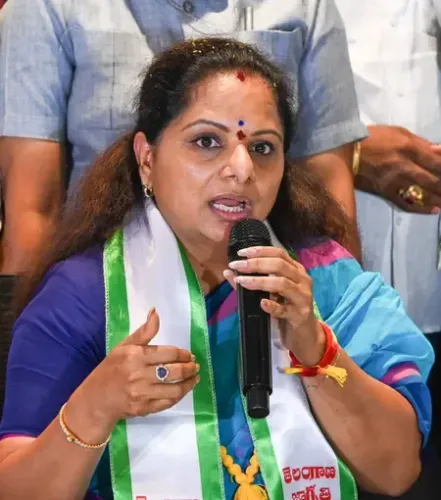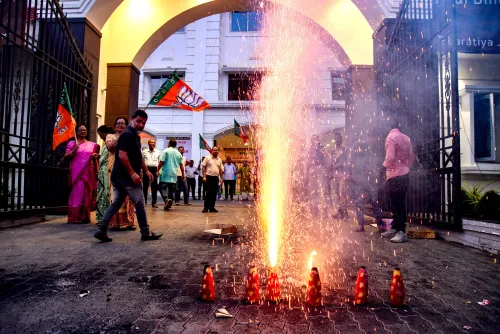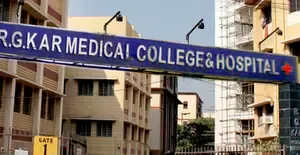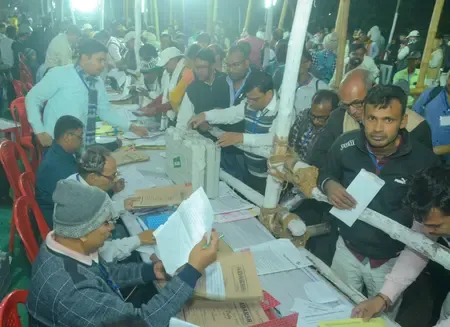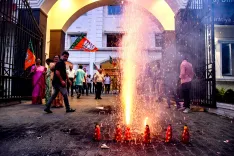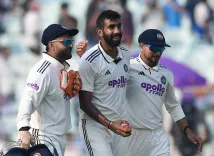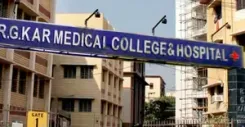Did the Delhi HC Uphold Full Medical Reimbursement for a Retired Railway Employee?
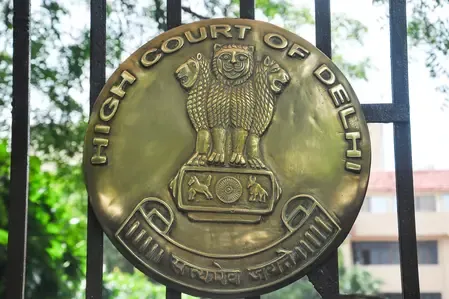
Synopsis
Key Takeaways
- Medical reimbursement is an enforceable right for government employees.
- The Delhi High Court's ruling reinforces the welfare obligations of the government.
- Emergency medical situations warrant full reimbursement regardless of rate caps.
- The ruling sets a significant precedent for future medical reimbursement claims.
- Retired employees are entitled to comprehensive medical benefits under existing laws.
New Delhi, Sep 28 (NationPress) The Delhi High Court has rejected a writ petition submitted by the Union government contesting a Central Administrative Tribunal (CAT) ruling that mandated full reimbursement of medical costs for a retired railway employee who underwent Covid-19 treatment.
A panel of Justices Navin Chawla and Madhu Jain affirmed the CAT’s order from February 13 in favor of Ayodhya Prasad, a former Office Superintendent-II who retired from Banaras Locomotive Works in 2004. The judges noted that medical reimbursement is not a matter of favor or charity but rather an enforceable entitlement.
Mr. Prasad, who is enrolled in the Retired Employees Liberalised Health Scheme (RELHS), was hospitalized in April 2021 at Apollo Hospital in Ahmedabad due to a severe Covid-19 infection. His total treatment expenses amounted to Rs 7,46,657, yet the Railways reimbursed only Rs 3,92,939, citing limits imposed by the Ahmedabad Municipal Corporation.
After his review application and appeal for the remaining funds were denied, he approached the CAT, which ordered the reimbursement of the outstanding Rs 3,53,718. This decision was contested by the Union government in the Delhi High Court.
Disregarding the Centre’s argument based on the rate caps from the Ahmedabad Municipal Corporation, the Justice Chawla-led panel stated that reimbursement should not be restricted in urgent medical circumstances.
“The argument that reimbursement was strictly according to the rates set by the Ahmedabad Municipal Corporation is untenable in this context,” the court asserted.
“Given that it is uncontested that the respondent required treatment during a medical emergency, the rigidity of rate limits cannot impede full reimbursement,” the Delhi High Court remarked, emphasizing that medical reimbursement is not a favor but a right derived from the employer’s responsibilities in a welfare state.
The Justice Chawla-led panel, referencing the Supreme Court’s decision in Shiv Kant Jha v. Union of India, stated: “It is established law that government employees, whether during service or post-retirement, are entitled to medical benefits, and no restrictions can be placed on these rights… Once established, the claim cannot be dismissed on technical grounds.”
Upholding the CAT’s ruling, the Delhi High Court ordered the Railways to reimburse the remaining amount with an interest rate of 8 percent. “The petitioners are instructed to release the outstanding medical expenses to the respondent, along with interest at an 8 percent annual rate, within eight weeks,” the Justice Chawla-led panel directed.

